Unit 2 Onwards and upwards Developing idea课件(共37张PPT)-高中英语外研版(2019)选择性必修第一册(共42页PPT)
文档属性
| 名称 | Unit 2 Onwards and upwards Developing idea课件(共37张PPT)-高中英语外研版(2019)选择性必修第一册(共42页PPT) | 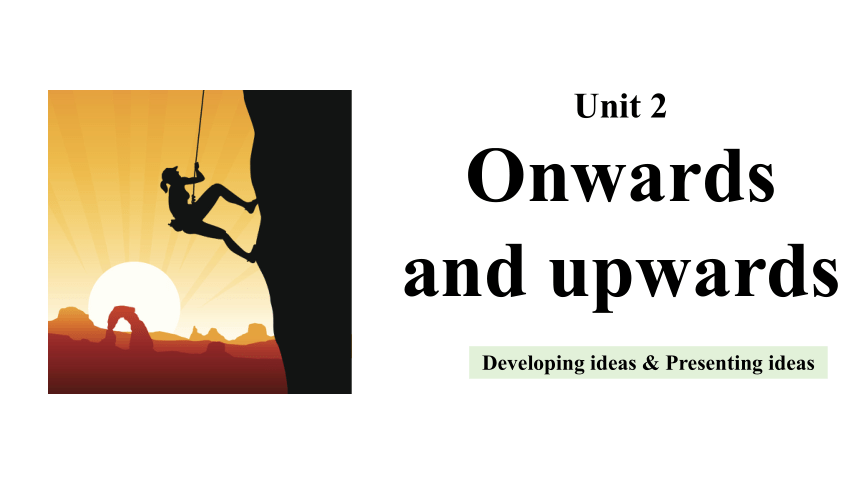 | |
| 格式 | pptx | ||
| 文件大小 | 28.7MB | ||
| 资源类型 | 教案 | ||
| 版本资源 | 外研版(2019) | ||
| 科目 | 英语 | ||
| 更新时间 | 2025-06-16 16:00:21 | ||
图片预览

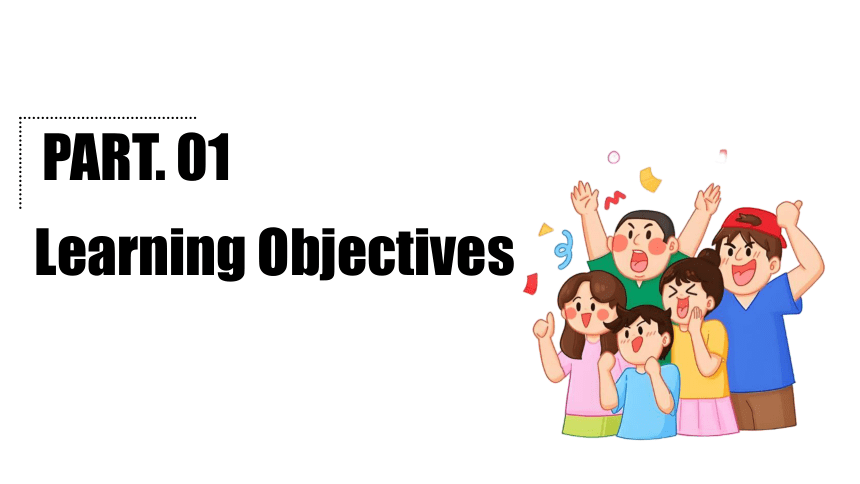
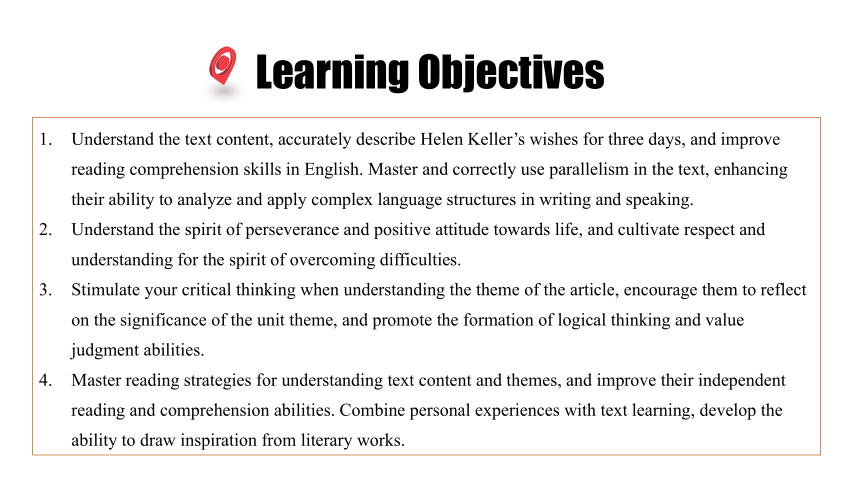
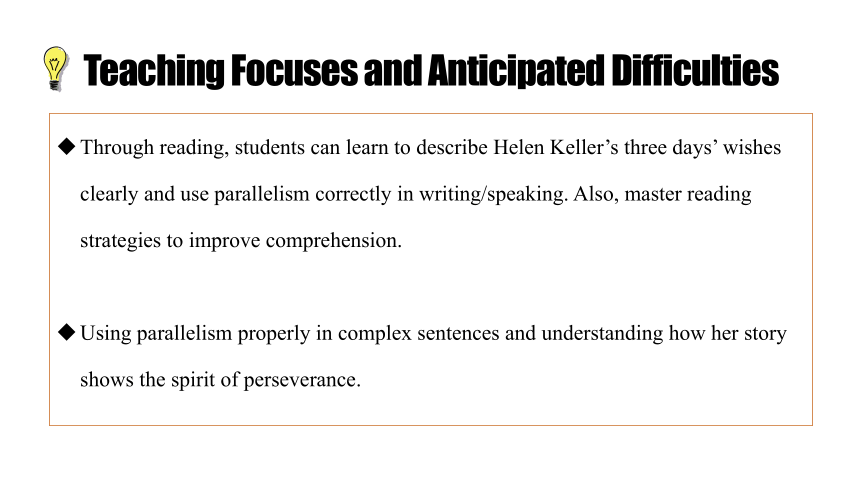
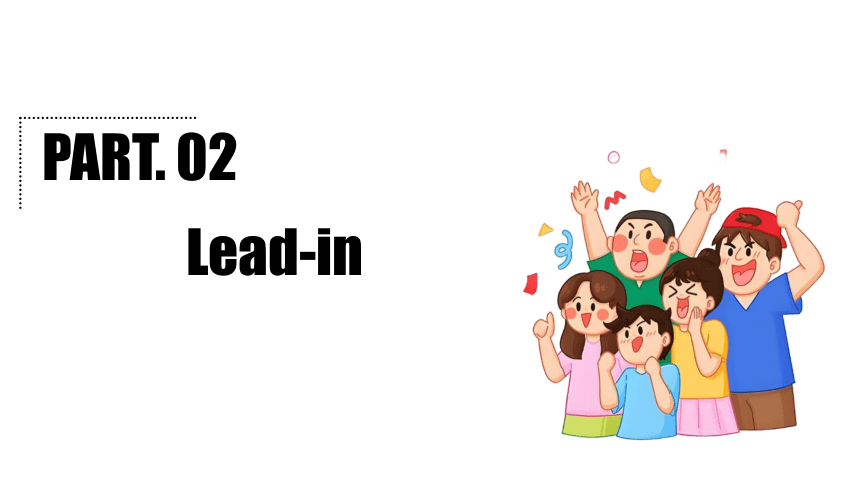
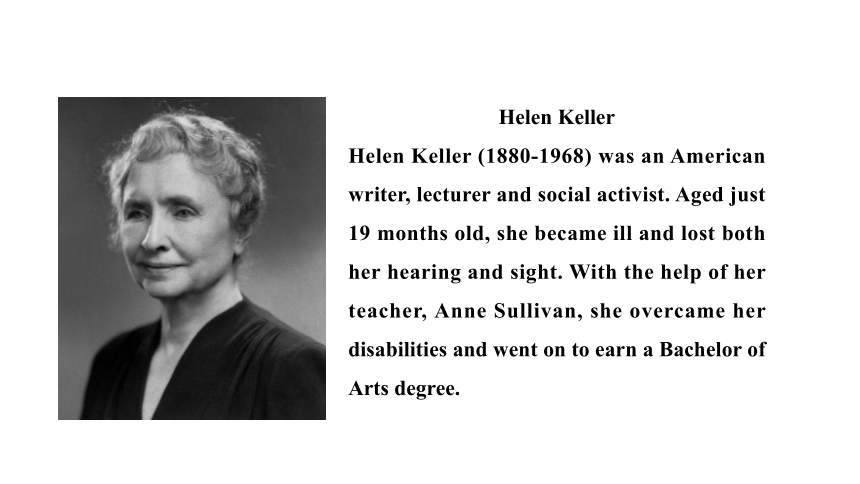
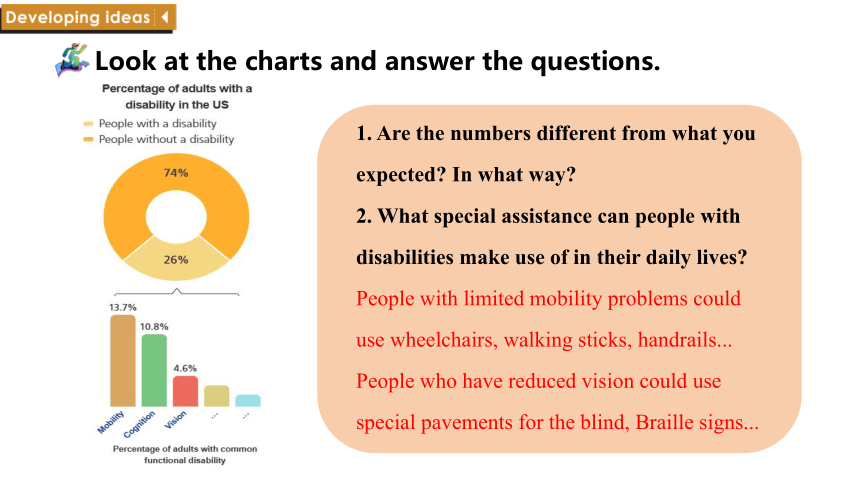
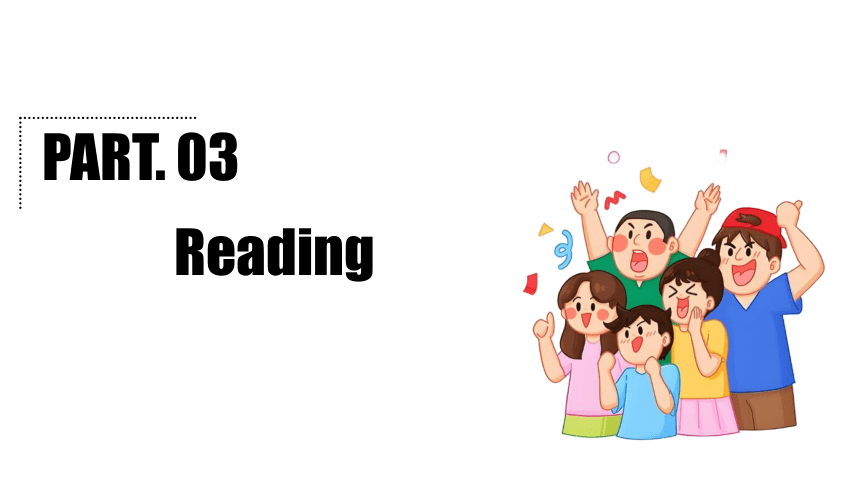
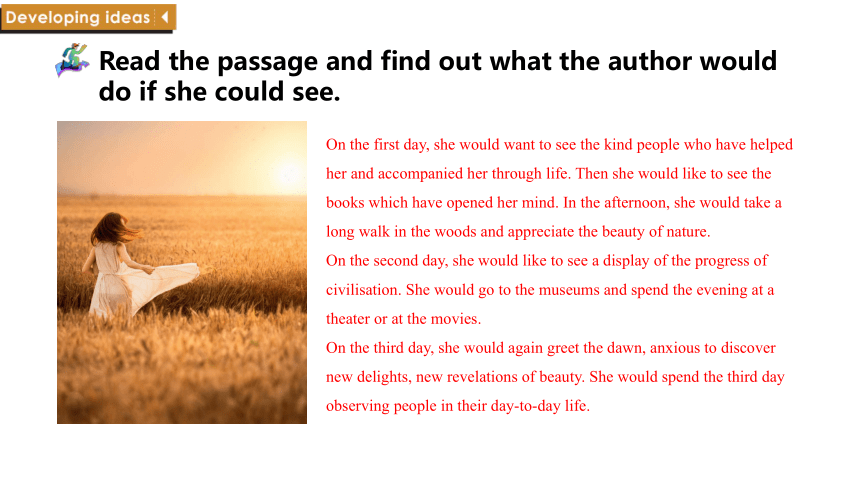
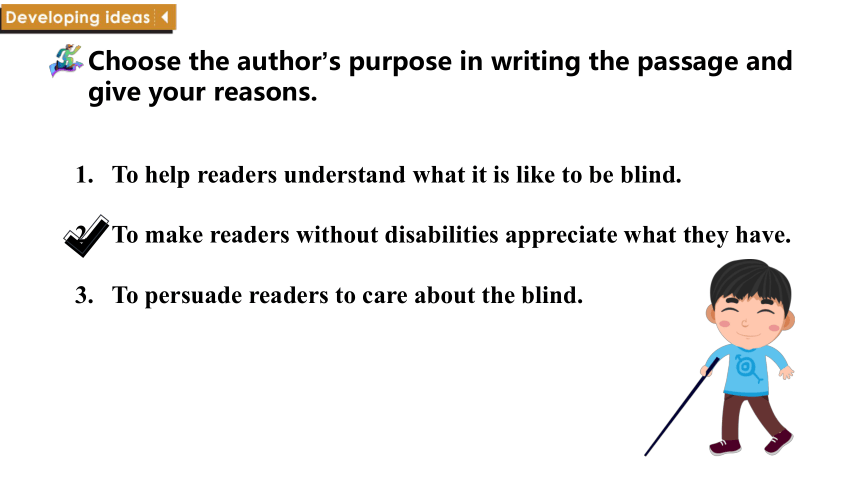
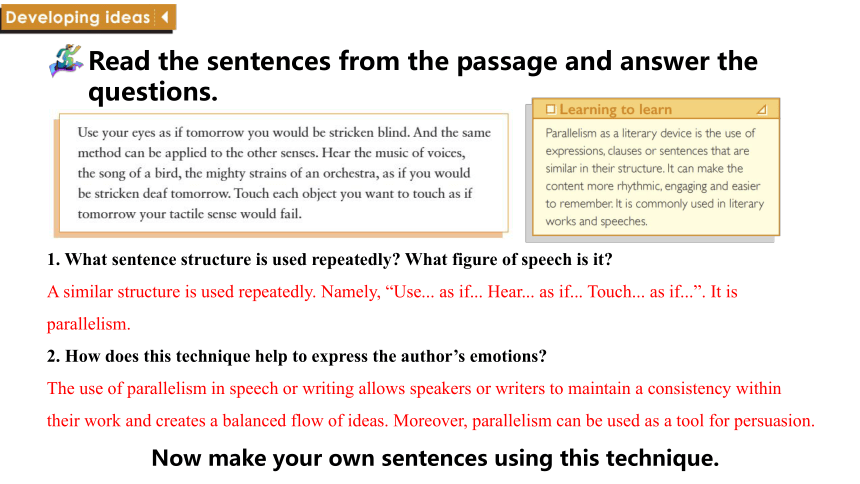
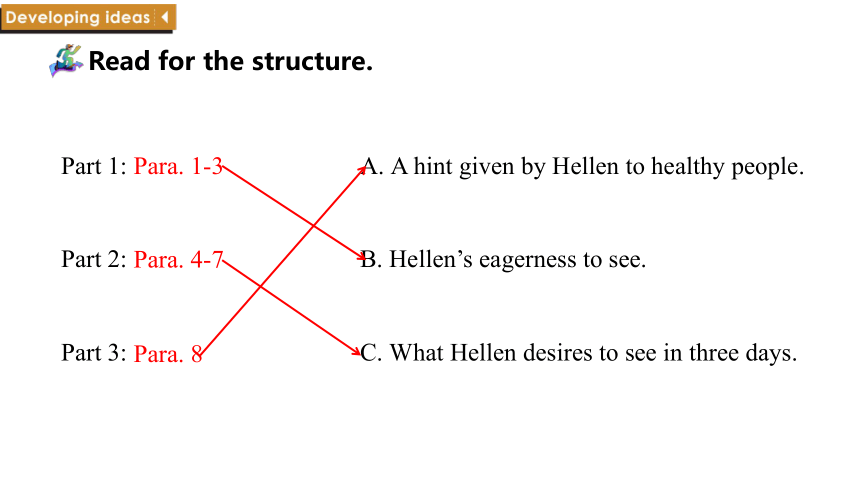
文档简介
(共37张PPT)
Developing ideas & Presenting ideas
Unit 2
Onwards
and upwards
Learning Objectives
PART. 01
Understand the daily study and life of British middle school students by watching videos. Based on your own daily study and life, compare the study and life in Chinese and British schools, and find out the similarities and differences between the two. Talk about your first impression of high school life, and have a preliminary perception of the study and life in the senior high school stage.
Learning Objectives
Understand the text content, accurately describe Helen Keller’s wishes for three days, and improve reading comprehension skills in English. Master and correctly use parallelism in the text, enhancing their ability to analyze and apply complex language structures in writing and speaking.
Understand the spirit of perseverance and positive attitude towards life, and cultivate respect and understanding for the spirit of overcoming difficulties.
Stimulate your critical thinking when understanding the theme of the article, encourage them to reflect on the significance of the unit theme, and promote the formation of logical thinking and value judgment abilities.
Master reading strategies for understanding text content and themes, and improve their independent reading and comprehension bine personal experiences with text learning, develop the ability to draw inspiration from literary works.
Understand the daily study and life of British middle school students by watching videos. Based on your own daily study and life, compare the study and life in Chinese and British schools, and find out the similarities and differences between the two. Talk about your first impression of high school life, and have a preliminary perception of the study and life in the senior high school stage.
Teaching Focuses and Anticipated Difficulties
Through reading, students can learn to describe Helen Keller’s three days’ wishes clearly and use parallelism correctly in writing/speaking. Also, master reading strategies to improve comprehension.
Using parallelism properly in complex sentences and understanding how her story shows the spirit of perseverance.
Lead-in
PART. 02
Helen Keller
Helen Keller (1880-1968) was an American writer, lecturer and social activist. Aged just 19 months old, she became ill and lost both her hearing and sight. With the help of her teacher, Anne Sullivan, she overcame her disabilities and went on to earn a Bachelor of Arts degree.
Look at the charts and answer the questions.
1. Are the numbers different from what you expected In what way
2. What special assistance can people with disabilities make use of in their daily lives
People with limited mobility problems could use wheelchairs, walking sticks, handrails...
People who have reduced vision could use special pavements for the blind, Braille signs...
Reading
PART. 03
Read the passage and find out what the author would do if she could see.
On the first day, she would want to see the kind people who have helped her and accompanied her through life. Then she would like to see the books which have opened her mind. In the afternoon, she would take a long walk in the woods and appreciate the beauty of nature.
On the second day, she would like to see a display of the progress of civilisation. She would go to the museums and spend the evening at a theater or at the movies.
On the third day, she would again greet the dawn, anxious to discover new delights, new revelations of beauty. She would spend the third day observing people in their day-to-day life.
Choose the author’s purpose in writing the passage and give your reasons.
To help readers understand what it is like to be blind.
To make readers without disabilities appreciate what they have.
To persuade readers to care about the blind.
Read the sentences from the passage and answer the questions.
1. What sentence structure is used repeatedly What figure of speech is it
A similar structure is used repeatedly. Namely, “Use... as if... Hear... as if... Touch... as if...”. It is parallelism.
2. How does this technique help to express the author’s emotions
The use of parallelism in speech or writing allows speakers or writers to maintain a consistency within their work and creates a balanced flow of ideas. Moreover, parallelism can be used as a tool for persuasion.
Now make your own sentences using this technique.
Read for the structure.
A. A hint given by Hellen to healthy people.
B. Hellen’s eagerness to see.
C. What Hellen desires to see in three days.
Para. 1-3
Para. 4-7
Para. 8
Part 1:
Part 2:
Part 3:
Read the passage carefully. Choose the best answer for the following questions.
1. Why does the author think it is a blessing if people are blind and deaf for a few days
A. People will learn to appreciate sight and enjoy sound.
B. Suffering is something everyone must experience.
C. She wants others to go through the same pain as her.
D. The disability won't last long.
2. How did Helen Keller feel when her friend told her she had observed nothing in particular in the woods
A. Disappointed B. Appreciative
C. Doubtful D. Approved
Read the passage carefully. Choose the best answer for the following questions.
3. Why does the author intend to go to the museums
A. To visit one of her friends.
B. To know more about the progress of human beings.
C. To touch the things she knows.
D. To learn more about the development of the movies.
4. The hint the author gives to those who see is that _____.
A. they should listen to the music of voices, the song of a bird and the mighty strains
of an orchestra
B. they should touch every object they want to touch
C. they should smell flowers and try delicious food
D. they should use their eyes as if they would be stricken blind tomorrow
Think & share
1. What are the main wishes of the author Give an example.
The author would like to be able to see for three days. She would like to be able to see the people who have helped her and with whom she spends her time. She would like to see the books she has read.
2. Do you know of any stories about people with disabilities Share one with the class.
Think & share
3. How should we interact with people with disabilities
4. What qualities do both reading passages in this unit convey
Facing difficulties and setbacks in life with a positive attitude.
Work in groups. Give a talk about your opinion on the sentence from the passage.
1. Read and discuss the meaning of the sentence and decide whether you agree or disagree with it.
2. Organise your talk and make notes.
3. Give your talk to the class.
Now think about your performance during group discussion. Did you actively participate and contribute ideas
Vocabulary
1. blessing
bless vt. 祝福
blessed adj. 有幸具有的;幸运的
be blessed with 有幸得到
It's a blessing that 幸好……
例题:
Losing that job was a ________(bless) accident — I found a better opportunity soon after.
blessed
Vocabulary
2. appreciative
appreciate v. 感激;欣赏;理解
appreciation n. 感激;欣赏;理解
be appreciative of 感激……
例题:
She was deeply ____________(appreciate) of the help her colleagues gave during the project.
appreciative
Vocabulary
3. worthy
be worthy of + n. 值得……的
be worth doing 值得做(动名词的主动形式表被动意义)
be worthy of being done=be worthy to be done 值得做
It's worthwhile doing sth./to do sth. 做某事是值得的
例题:
Her achievements are _________(worth) of being celebrated.
worthy
Vocabulary
4. embarrassed
embarrass v. 使尴尬,使窘迫
embarrassment n. 尴尬,窘迫
embarrassing adj. 令人尴尬的,使人难堪的
be/feel embarrassed about/at 因……而感到
be embarrassed to do sth. 尴尬地做某事
with embarrassment 尴尬地
to one's embarrassment 使某人尴尬的是
例题:
She was ____________(embarrass) by her mistake in front of the entire class.
embarrassed
Writing
PART. 04
Sunday 20 October
When you dine out, do you prefer to choose a restaurant with bright light or dim one What’s the feeling if you dine at a “dark restaurant”
Sunday 20 October
Read the passage and answer the following questions:
Dining in the Dark
Recently I accompanied a friend to dine at a “dark restaurant”, where people eat in complete darkness, served by blind staff. We wanted to understand the experience of being blind, and we thought eating would be the most difficult activity.
It was a difficult meal. Because we couldn’t see where anything was, my friend and I knocked over glasses and dropped food. My senses of taste and smell became more sensitive, and I ate much more slowly, trying to guess what I was eating. Pouring water was very difficult, plus I kept drinking from my friend’s glass.
After failing to pick up any food with a fork for five minutes, I decided to use my hands. I reached down, expecting rice and vegetables, but instead stuck my hand into a bowl of warm, thick soup.
“It’s best to use a spoon for this course,” the waiter said into my ear, helpfully but much too late. Even using a spoon, I spilled most of the soup on my shirt. I felt embarrassed, even though no one could see me.
Our waiter advised us to lift the plates and bowls close to our faces. However, I still left the restaurant feeling hungry, though I was much more aware of the challenges that blind people face.
Sunday 20 October
Read the passage and answer the following questions:
1. Why did the author go to the “dark restaurant”
Because the author and his/her friend wanted to understand the experience of being blind, thinking eating would be the most difficult activity.
2. What difficulties did the author have during the meal
a. The author knocked over glasses and dropped food.
b. The author ate much more slowly, trying to guess what was being eaten.
c. Pouring water was very difficult.
d. After failing to pick up any food with a fork for five minutes, the author decided to use hands, but stuck one hand into a bowl of warm, thick soup.
e. Even using a spoon, the author spilled most of the soup on his/her shirt.
3. How did the author feel after finishing the meal
The author left the restaurant feeling hungry, though much more aware of the challenges that blind people face.
Try to experience what it is like to have a disability and make notes.
Now write a short passage to describe your experience.
Work in pairs. Make improvements to each other’s passages and share them with the class.
Today in class, we played a game called “the blind traveler”, in which one has to walk through some barriers with their eyes blindfolded. It is through this experience that I started to realise how inconvenient life could be for a blind person.
Not being able to see where l was going, I kept going off the path and turning in the wrong direction. What’s more, without the ability to accurately locate the position of the barriers, l often fell over them, even though I was moving at an extremely slow speed. And a loss of balance increased the difficulty of this short journey. After falling over more than ten times, I finally reached my destination on hands and knees.
Without sight, I couldn’t even complete this short journey of no more than 15 metres smoothly, let alone overcome all the other various difficulties in daily life. I do realise that life must be much more challenging for the blind people.
Sample
Read the two points of view and explain their meanings in your own words.
If at first you don’t succeed,
try, try on and on.
If at first you don’t succeed, set yourself another goal.
VS
Work in groups and decide which opinion you agree with more. Think of arguments to support your point of view and make notes.
Prepare for a debate. Consider the following:
the roles and responsibilities for each member of your group
your arguments, opening and summary
the opposing arguments you might face and how you can respond to them
useful words, expressions and structures
Team up with a group with the opposite point of view and hold the debate.
Exercise
PART. 05
1. She joined a l________(文学的) club to discuss poetry and novels with fellow readers.
2. The organization aims to end p___________(长久的) poverty through education and job training.
3. The project o________(轮廓) includes goals, deadlines, and responsibilities for each team member.
4. The company became a m_________(强有力的) force in the tech industry within a decade.
5. The p________(香味) of blooming roses filled the garden.
iterary
Exercise: 单词拼写
ermanent
utline
ighty
erfume
1. The teacher’s ___________(gentle) helped the shy student gain confidence in class.
2. She earned ________(mere) $50 from the part-time job, which wasn’t enough to cover her expenses.
3. The hostess gave us a ____________(delight) welcome, making us feel at home immediately.
4. Visiting the ancient ruins was a _________(reveal) — I’d never understood history so vividly before.
5. Having supportive friends is a true _________(bless) with unimaginable power to overcome difficulties.
gentleness
Exercise: 用所给词的适当形式填空
merely
delightful
revelation
blessing
Homework
PART. 06
Prepare for a debate and hold the debate with your friends.
Polish your writing.
Homework
See you next class!
Developing ideas & Presenting ideas
Unit 2
Onwards
and upwards
Learning Objectives
PART. 01
Understand the daily study and life of British middle school students by watching videos. Based on your own daily study and life, compare the study and life in Chinese and British schools, and find out the similarities and differences between the two. Talk about your first impression of high school life, and have a preliminary perception of the study and life in the senior high school stage.
Learning Objectives
Understand the text content, accurately describe Helen Keller’s wishes for three days, and improve reading comprehension skills in English. Master and correctly use parallelism in the text, enhancing their ability to analyze and apply complex language structures in writing and speaking.
Understand the spirit of perseverance and positive attitude towards life, and cultivate respect and understanding for the spirit of overcoming difficulties.
Stimulate your critical thinking when understanding the theme of the article, encourage them to reflect on the significance of the unit theme, and promote the formation of logical thinking and value judgment abilities.
Master reading strategies for understanding text content and themes, and improve their independent reading and comprehension bine personal experiences with text learning, develop the ability to draw inspiration from literary works.
Understand the daily study and life of British middle school students by watching videos. Based on your own daily study and life, compare the study and life in Chinese and British schools, and find out the similarities and differences between the two. Talk about your first impression of high school life, and have a preliminary perception of the study and life in the senior high school stage.
Teaching Focuses and Anticipated Difficulties
Through reading, students can learn to describe Helen Keller’s three days’ wishes clearly and use parallelism correctly in writing/speaking. Also, master reading strategies to improve comprehension.
Using parallelism properly in complex sentences and understanding how her story shows the spirit of perseverance.
Lead-in
PART. 02
Helen Keller
Helen Keller (1880-1968) was an American writer, lecturer and social activist. Aged just 19 months old, she became ill and lost both her hearing and sight. With the help of her teacher, Anne Sullivan, she overcame her disabilities and went on to earn a Bachelor of Arts degree.
Look at the charts and answer the questions.
1. Are the numbers different from what you expected In what way
2. What special assistance can people with disabilities make use of in their daily lives
People with limited mobility problems could use wheelchairs, walking sticks, handrails...
People who have reduced vision could use special pavements for the blind, Braille signs...
Reading
PART. 03
Read the passage and find out what the author would do if she could see.
On the first day, she would want to see the kind people who have helped her and accompanied her through life. Then she would like to see the books which have opened her mind. In the afternoon, she would take a long walk in the woods and appreciate the beauty of nature.
On the second day, she would like to see a display of the progress of civilisation. She would go to the museums and spend the evening at a theater or at the movies.
On the third day, she would again greet the dawn, anxious to discover new delights, new revelations of beauty. She would spend the third day observing people in their day-to-day life.
Choose the author’s purpose in writing the passage and give your reasons.
To help readers understand what it is like to be blind.
To make readers without disabilities appreciate what they have.
To persuade readers to care about the blind.
Read the sentences from the passage and answer the questions.
1. What sentence structure is used repeatedly What figure of speech is it
A similar structure is used repeatedly. Namely, “Use... as if... Hear... as if... Touch... as if...”. It is parallelism.
2. How does this technique help to express the author’s emotions
The use of parallelism in speech or writing allows speakers or writers to maintain a consistency within their work and creates a balanced flow of ideas. Moreover, parallelism can be used as a tool for persuasion.
Now make your own sentences using this technique.
Read for the structure.
A. A hint given by Hellen to healthy people.
B. Hellen’s eagerness to see.
C. What Hellen desires to see in three days.
Para. 1-3
Para. 4-7
Para. 8
Part 1:
Part 2:
Part 3:
Read the passage carefully. Choose the best answer for the following questions.
1. Why does the author think it is a blessing if people are blind and deaf for a few days
A. People will learn to appreciate sight and enjoy sound.
B. Suffering is something everyone must experience.
C. She wants others to go through the same pain as her.
D. The disability won't last long.
2. How did Helen Keller feel when her friend told her she had observed nothing in particular in the woods
A. Disappointed B. Appreciative
C. Doubtful D. Approved
Read the passage carefully. Choose the best answer for the following questions.
3. Why does the author intend to go to the museums
A. To visit one of her friends.
B. To know more about the progress of human beings.
C. To touch the things she knows.
D. To learn more about the development of the movies.
4. The hint the author gives to those who see is that _____.
A. they should listen to the music of voices, the song of a bird and the mighty strains
of an orchestra
B. they should touch every object they want to touch
C. they should smell flowers and try delicious food
D. they should use their eyes as if they would be stricken blind tomorrow
Think & share
1. What are the main wishes of the author Give an example.
The author would like to be able to see for three days. She would like to be able to see the people who have helped her and with whom she spends her time. She would like to see the books she has read.
2. Do you know of any stories about people with disabilities Share one with the class.
Think & share
3. How should we interact with people with disabilities
4. What qualities do both reading passages in this unit convey
Facing difficulties and setbacks in life with a positive attitude.
Work in groups. Give a talk about your opinion on the sentence from the passage.
1. Read and discuss the meaning of the sentence and decide whether you agree or disagree with it.
2. Organise your talk and make notes.
3. Give your talk to the class.
Now think about your performance during group discussion. Did you actively participate and contribute ideas
Vocabulary
1. blessing
bless vt. 祝福
blessed adj. 有幸具有的;幸运的
be blessed with 有幸得到
It's a blessing that 幸好……
例题:
Losing that job was a ________(bless) accident — I found a better opportunity soon after.
blessed
Vocabulary
2. appreciative
appreciate v. 感激;欣赏;理解
appreciation n. 感激;欣赏;理解
be appreciative of 感激……
例题:
She was deeply ____________(appreciate) of the help her colleagues gave during the project.
appreciative
Vocabulary
3. worthy
be worthy of + n. 值得……的
be worth doing 值得做(动名词的主动形式表被动意义)
be worthy of being done=be worthy to be done 值得做
It's worthwhile doing sth./to do sth. 做某事是值得的
例题:
Her achievements are _________(worth) of being celebrated.
worthy
Vocabulary
4. embarrassed
embarrass v. 使尴尬,使窘迫
embarrassment n. 尴尬,窘迫
embarrassing adj. 令人尴尬的,使人难堪的
be/feel embarrassed about/at 因……而感到
be embarrassed to do sth. 尴尬地做某事
with embarrassment 尴尬地
to one's embarrassment 使某人尴尬的是
例题:
She was ____________(embarrass) by her mistake in front of the entire class.
embarrassed
Writing
PART. 04
Sunday 20 October
When you dine out, do you prefer to choose a restaurant with bright light or dim one What’s the feeling if you dine at a “dark restaurant”
Sunday 20 October
Read the passage and answer the following questions:
Dining in the Dark
Recently I accompanied a friend to dine at a “dark restaurant”, where people eat in complete darkness, served by blind staff. We wanted to understand the experience of being blind, and we thought eating would be the most difficult activity.
It was a difficult meal. Because we couldn’t see where anything was, my friend and I knocked over glasses and dropped food. My senses of taste and smell became more sensitive, and I ate much more slowly, trying to guess what I was eating. Pouring water was very difficult, plus I kept drinking from my friend’s glass.
After failing to pick up any food with a fork for five minutes, I decided to use my hands. I reached down, expecting rice and vegetables, but instead stuck my hand into a bowl of warm, thick soup.
“It’s best to use a spoon for this course,” the waiter said into my ear, helpfully but much too late. Even using a spoon, I spilled most of the soup on my shirt. I felt embarrassed, even though no one could see me.
Our waiter advised us to lift the plates and bowls close to our faces. However, I still left the restaurant feeling hungry, though I was much more aware of the challenges that blind people face.
Sunday 20 October
Read the passage and answer the following questions:
1. Why did the author go to the “dark restaurant”
Because the author and his/her friend wanted to understand the experience of being blind, thinking eating would be the most difficult activity.
2. What difficulties did the author have during the meal
a. The author knocked over glasses and dropped food.
b. The author ate much more slowly, trying to guess what was being eaten.
c. Pouring water was very difficult.
d. After failing to pick up any food with a fork for five minutes, the author decided to use hands, but stuck one hand into a bowl of warm, thick soup.
e. Even using a spoon, the author spilled most of the soup on his/her shirt.
3. How did the author feel after finishing the meal
The author left the restaurant feeling hungry, though much more aware of the challenges that blind people face.
Try to experience what it is like to have a disability and make notes.
Now write a short passage to describe your experience.
Work in pairs. Make improvements to each other’s passages and share them with the class.
Today in class, we played a game called “the blind traveler”, in which one has to walk through some barriers with their eyes blindfolded. It is through this experience that I started to realise how inconvenient life could be for a blind person.
Not being able to see where l was going, I kept going off the path and turning in the wrong direction. What’s more, without the ability to accurately locate the position of the barriers, l often fell over them, even though I was moving at an extremely slow speed. And a loss of balance increased the difficulty of this short journey. After falling over more than ten times, I finally reached my destination on hands and knees.
Without sight, I couldn’t even complete this short journey of no more than 15 metres smoothly, let alone overcome all the other various difficulties in daily life. I do realise that life must be much more challenging for the blind people.
Sample
Read the two points of view and explain their meanings in your own words.
If at first you don’t succeed,
try, try on and on.
If at first you don’t succeed, set yourself another goal.
VS
Work in groups and decide which opinion you agree with more. Think of arguments to support your point of view and make notes.
Prepare for a debate. Consider the following:
the roles and responsibilities for each member of your group
your arguments, opening and summary
the opposing arguments you might face and how you can respond to them
useful words, expressions and structures
Team up with a group with the opposite point of view and hold the debate.
Exercise
PART. 05
1. She joined a l________(文学的) club to discuss poetry and novels with fellow readers.
2. The organization aims to end p___________(长久的) poverty through education and job training.
3. The project o________(轮廓) includes goals, deadlines, and responsibilities for each team member.
4. The company became a m_________(强有力的) force in the tech industry within a decade.
5. The p________(香味) of blooming roses filled the garden.
iterary
Exercise: 单词拼写
ermanent
utline
ighty
erfume
1. The teacher’s ___________(gentle) helped the shy student gain confidence in class.
2. She earned ________(mere) $50 from the part-time job, which wasn’t enough to cover her expenses.
3. The hostess gave us a ____________(delight) welcome, making us feel at home immediately.
4. Visiting the ancient ruins was a _________(reveal) — I’d never understood history so vividly before.
5. Having supportive friends is a true _________(bless) with unimaginable power to overcome difficulties.
gentleness
Exercise: 用所给词的适当形式填空
merely
delightful
revelation
blessing
Homework
PART. 06
Prepare for a debate and hold the debate with your friends.
Polish your writing.
Homework
See you next class!
